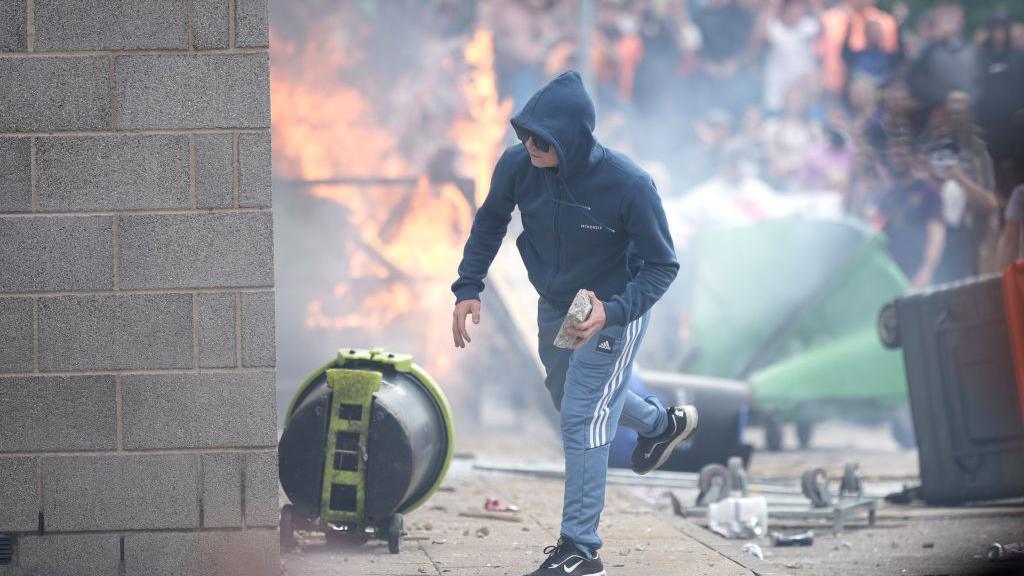'Nowhere to hide' for influencers behind disorder - top prosecutor

Stephen Parkinson said anybody involved in the violence would face the most severe possible criminal charges, including terrorism
- Published
The director of public prosecutions says his teams will consider seeking the extradition of social media influencers allegedly playing a role in the violent disorder gripping the UK from abroad.
Stephen Parkinson told the BBC that offenders "must know that they are not safe and there is nowhere to hide".
He added that anybody involved in the violence should know they would face the most severe possible criminal charges, including terrorism.
Approximately 100 of the 400 people arrested in relation to a week of disorder have been charged, Mr Parkinson revealed.
Prosecutors and detectives are now working through cases in teams across England and Wales to push as many suspects into the courts as quickly as possible. Some complex cases could take weeks more to be charged, but Mr Parkinson said prosecutors were “absolutely geared up” to bring offenders to justice.
Concern has been mounting about extreme right-wing social media influencers, including the founder of the English Defence League, Stephen Yaxley-Lennon, also known as Tommy Robinson.
He is currently in Cyprus. The High Court has issued a warrant for his arrest after he failed to turn up in court last Monday.

Mr Parkinson said: “Some people are abroad. That doesn't mean they're safe. We have liaison prosecutors around the globe, who've got local links with the local judiciary. We can cooperate with our international partners.
“We would certainly consider extradition if we are satisfied that an offence has been committed.
“And if it takes weeks or not months, we will bring them home and they will face justice.”
Violent riots following the fatal stabbing of three girls in Southport have now lasted almost a week.
Suspects charged so far have faced allegations including violent disorder, which can lead to five years in jail. Other suspects who have been arrested are still being assessed for the more serious charge of rioting, that can lead to ten years.
Those charging decisions would take longer, said Mr Parkinson, because of the nature of the crime and the evidence needed - but they will come.
“There are sentencing guidelines which indicate that many people who have been caught up in this disorder will face immediate imprisonment. There should be no doubt about that. They are going to prison.
“We are willing to look at terrorism offences. I'm aware of at least one instance where that is happening.
“Where you have organised groups planning activity for the purposes of advancing [an] ideology ... planning really, really serious disruption then yes, we will consider terrorism offences.”
Earlier today, the Crown Prosecution Service charged a 28-year-old man with posting content online that was allegedly intended to stir up racial hatred in relation to the violence disorder - the first such charge in relation to the clashes.
Get in touch
Have you been affected by any of the protests? Please get in touch.